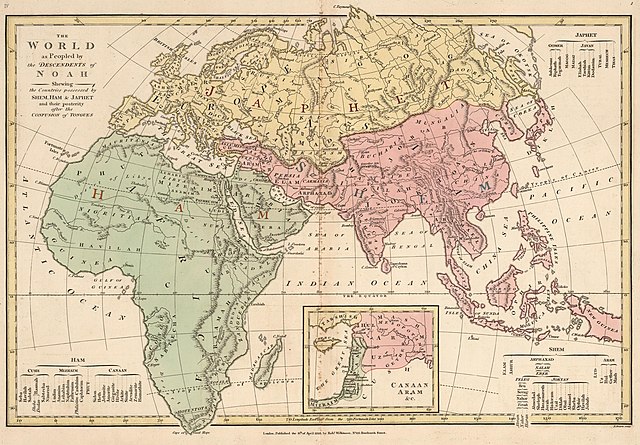Tarshish occurs in the Hebrew Bible with several uncertain meanings, most frequently as a place far across the sea from Phoenicia and the Land of Israel. Tarshish was said to have exported vast quantities of important metals to Phoenicia and Israel. The same place name occurs in the Akkadian inscriptions of Assyrian king Esarhaddon and also on the Phoenician inscription of the Nora Stone in Sardinia; its precise location was never commonly known, and was eventually lost in antiquity. Legends grew up around it over time so that its identity has been the subject of scholarly research and commentary for more than two thousand years.
The 19th-century "World as Peopled by the Descendants of Noah", showing "Tarshish" as the countryside around Tarsus in southeastern Anatolia
The Nora Stone or Nora Inscription is an ancient Phoenician inscribed stone found at Nora on the south coast of Sardinia in 1773. Though it was not discovered in its primary context, it has been dated by palaeographic methods to the late 9th century to early 8th century BCE and is still considered the oldest Phoenician inscription found anywhere outside of the Levant.
Stele of Nora, Museo archeologico nazionale in Cagliari
Nora Stone in Gesenius's 1837 Scripturae Linguaeque Phoeniciae Monumenta



